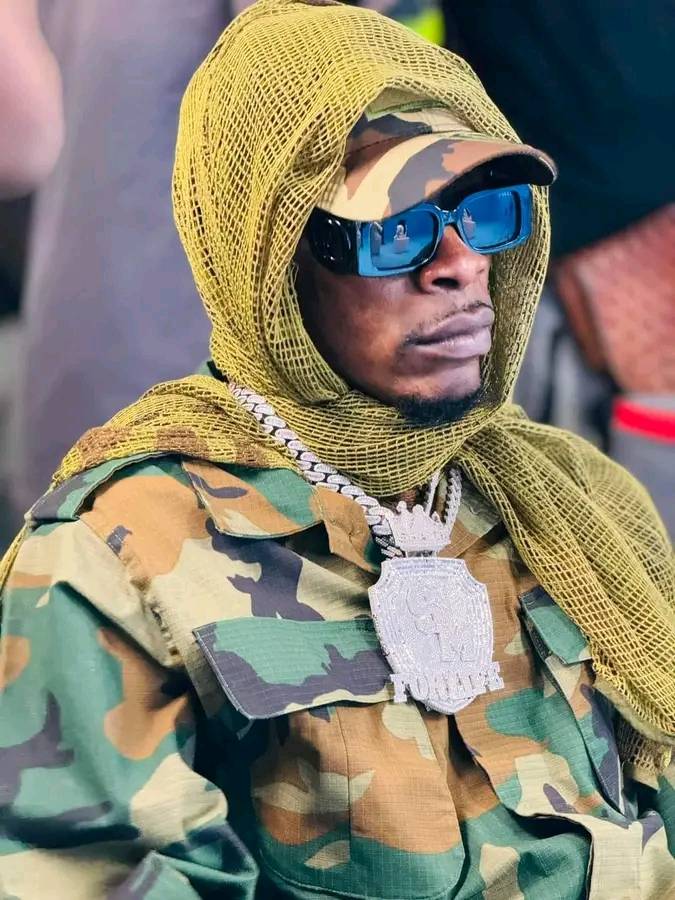The Rise of Shatta Wale: From Bandana to Global Dancehall King
Charles Nii Armah Mensah Jr., better known as Shatta Wale, is a Ghanaian dancehall artist who has become a global phenomenon. His journey is a testament to his talent, resilience, and unwavering belief in his music. From his humble beginnings as a young artist navigating the complexities of the Ghanaian music scene to his current status as a global icon, Shatta Wale's story is one of passion, perseverance, and the power of music to transcend borders and inspire generations.
Early Days and the Birth of Bandana:
Shatta Wale's musical journey began in his teenage years, growing up in Accra, Ghana. He was drawn to the vibrant energy and rebellious spirit of dancehall music, influenced by Jamaican artists like Shabba Ranks and Buju Banton. He started writing his own songs, experimenting with different rhythms and flows, and immersing himself in the world of dancehall culture.
In 2004, he adopted the stage name "Bandana" and released his debut single "Moko Hoo." The song, a catchy blend of dancehall and Ghanaian highlife, gained some traction, but it wasn't the breakthrough he envisioned. The Ghanaian music scene was dominated by established artists, and Bandana struggled to find his footing amidst the competition.
The Struggle for Recognition:
The early years of Bandana's career were marked by challenges. He faced rejection from record labels, struggled to secure radio airplay, and encountered skepticism from those who doubted his potential. He persevered, however, driven by an unwavering belief in his music and a desire to make a mark on the Ghanaian music scene.
He released a series of singles, including "Dancehall Soldier" and "Paa No," which showcased his unique style and lyrical prowess. However, these songs failed to achieve widespread success, and Bandana found himself at a crossroads. He questioned his path, wondering if he had the talent and determination to succeed in the competitive world of music.
The Turning Point: Rebranding as Shatta Wale:
In 2013, Bandana decided to rebrand himself as Shatta Wale, a name that reflected his newfound confidence and ambition. He felt that the name "Bandana" had become synonymous with his past struggles, and he wanted to shed that image and embrace a fresh start.
He released the single "Dancehall King," a powerful anthem that resonated with the youth of Ghana. The song was a bold declaration of his dominance in the dancehall genre, and it quickly became a national sensation. It topped the charts, dominated radio airplay, and sparked a wave of excitement across the country.
Shatta Movement: Building a Fanbase:
Shatta Wale's success wasn't just about his music; it was about the movement he built around it. He established the Shatta Movement, a loyal fanbase that embraced his unique style and message. His music, often characterized by its braggadocio and social commentary, resonated with a generation yearning for change and empowerment.
The Shatta Movement became more than just a fanbase; it evolved into a cultural phenomenon. Fans adopted his signature dance moves, wore his merchandise, and chanted his lyrics at concerts. Shatta Wale's music became a soundtrack for their lives, a symbol of their aspirations and their desire to break free from societal constraints.
Global Recognition and International Collaborations:
Shatta Wale's music began to transcend borders, reaching audiences in Africa, Europe, and the United States. His energetic performances, infectious rhythms, and powerful lyrics captivated listeners across the globe. He collaborated with international artists like Beyoncé, Vybz Kartel, and Buran Boy, further solidifying his global presence.
His collaboration with Beyoncé on the song "Already" from her "Lion King: The Gift" album was a major breakthrough. The song became a global hit, reaching the top of the charts in several countries and introducing Shatta Wale to a wider international audience.
Controversy and Resilience:
Shatta Wale's career has not ot been without controversy. He has been involved in public feuds with other artists, including Stonebwoy, and has faced criticism for his outspoken nature. He has been accused of being arrogant and disrespectful, and his music has been criticized for its explicit lyrics and controversial themes.
However, Shatta Wale has always remained true to himself, using his platform to speak out against injustice and advocate for the rights of the marginalized. He has used his music to address social issues, challenge societal norms, and inspire his fans to fight for what they believe in.
Shatta Wale Today: A Global Icon:
Today, Shatta Wale is one of the most influential and successful artists in Africa. He continues to push boundaries with his music, experimenting with different genres and collaborating with a diverse range of artists. He has released numerous hit singles, including "Ayoo," "My Level," and "Melissa," and has won numerous awards, including the prestigious Vodafone Ghana Music Awards.
He remains a powerful voice for the youth of Ghana and a symbol of hope and resilience for aspiring artists across the continent. His journey is a story of passion, perseverance, and the power of music to connect people across cultures and continents. He has proven that with talent, hard work, and a belief in oneself, anything is possible.
Shatta Wale's Legacy:
Shatta Wale's legacy extends beyond his music. He has become a cultural icon, inspiring a generation of young Ghanaians and Africans to pursue their dreams and challenge the status quo. He has shown that it is possible to achieve success while staying true to one's roots and advocating for social change.
His music has become a soundtrack for a generation, a symbol of their struggles, their aspirations, and their desire for a better future. He has helped to redefine the landscape of Ghanaian music, bringing dancehall to the forefront and inspiring a new wave of artists.
Shatta Wale's journey is a testament to the power of music to transcend borders, inspire change, and connect people across cultures. He is a true global icon, a symbol of hope and resilience, and a reminder that with passion, determination, and a belief in oneself, anything is possible.


